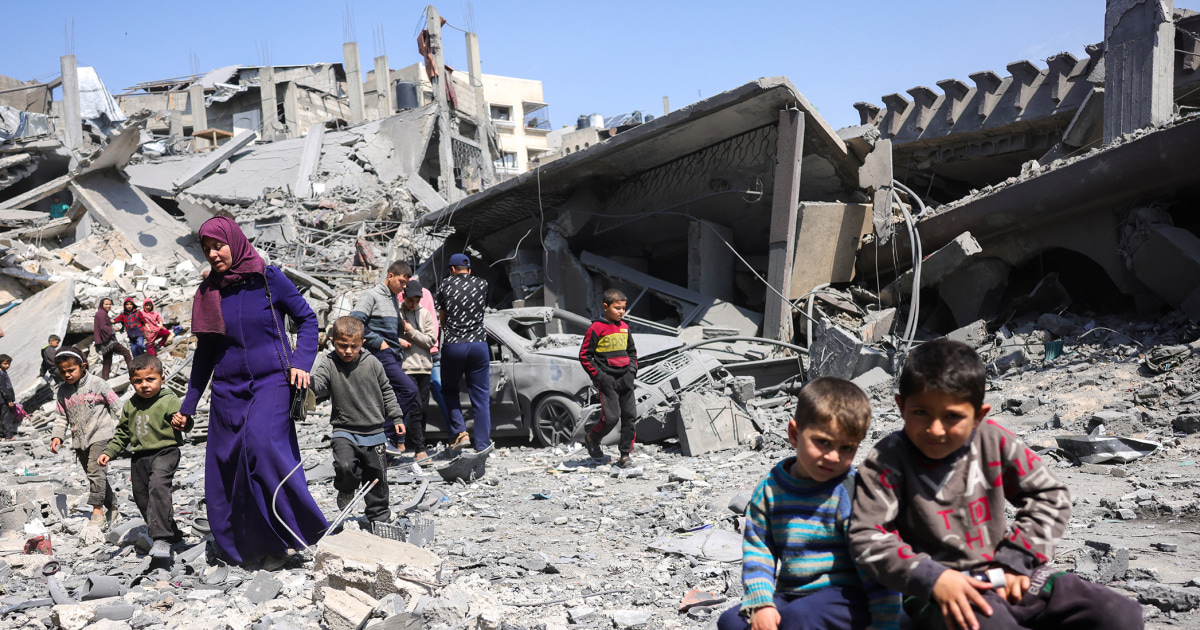Israel-Hamas: Trump's Unexpected Peacemaking Chance?
The escalating conflict between Israel and Hamas has thrust the region into a volatile state, prompting global concern and raising the question: could this crisis present an unexpected opportunity for peacemaking, particularly under a potential Trump administration? While the immediate focus remains on humanitarian aid and ceasefire efforts, the long-term implications and potential for diplomatic breakthroughs deserve careful consideration. This article delves into the complexities of the situation and explores the potential role a future Trump administration could play in fostering lasting peace.
The Current Crisis: A Humanitarian Catastrophe and Political Impasse
The recent conflict has resulted in a devastating humanitarian crisis, with countless casualties and widespread destruction in both Gaza and Israel. Beyond the immediate suffering, the political landscape remains deeply entrenched, characterized by:
- Deep-seated mistrust: Decades of conflict have fostered profound distrust between Israelis and Palestinians, hindering any meaningful progress towards lasting peace.
- Differing narratives: Conflicting narratives surrounding the conflict further complicate the situation, making it difficult to establish common ground for dialogue.
- Fractured political landscape: Internal divisions within both Israeli and Palestinian societies pose significant challenges to any peace initiative.
The Role of External Actors
External actors, including the United States, the United Nations, and regional powers, play a crucial role in shaping the trajectory of the conflict. Their involvement, however, is often fraught with challenges, including:
- Differing interests: International actors often have competing interests, hindering their ability to present a united front.
- Lack of leverage: The influence of external actors can be limited by the entrenched positions of the involved parties.
- Enforcement challenges: Even if a peace agreement is reached, enforcing its terms can prove exceptionally difficult.
Trump's Potential Role: A Wild Card in the Peace Process
A potential return of Donald Trump to the presidency introduces a significant wildcard into the equation. His previous administration's approach to the Israeli-Palestinian conflict was marked by:
- Emphasis on direct negotiations: Trump prioritized direct negotiations between Israeli and Palestinian leaders, bypassing some traditional diplomatic channels.
- Focus on practical solutions: His administration focused on addressing practical issues, such as border security and economic development, rather than solely focusing on abstract principles.
- Controversial recognition of Jerusalem: The controversial recognition of Jerusalem as Israel's capital alienated some Palestinian factions.
Potential Opportunities and Challenges
While Trump's past actions remain controversial, his willingness to take unconventional approaches could present both opportunities and challenges for peacemaking:
- Opportunity for bold initiatives: His potential willingness to take risks and bypass traditional diplomatic constraints could be advantageous in breaking the deadlock.
- Challenge of regaining trust: Rebuilding trust with the Palestinian leadership, damaged by previous decisions, would be crucial for any successful initiative.
- Balancing competing interests: Maintaining a delicate balance between Israeli and Palestinian interests will be essential to achieving a sustainable peace.
The Path Forward: A Long and Difficult Journey
Achieving lasting peace between Israel and Hamas requires a multifaceted approach that addresses the root causes of the conflict. This includes:
- Addressing humanitarian needs: Immediate humanitarian assistance is paramount to alleviating the suffering of those affected by the conflict.
- Promoting dialogue and reconciliation: Facilitating dialogue and reconciliation between Israeli and Palestinian societies is crucial for building trust and fostering cooperation.
- Economic development and job creation: Promoting economic development and job creation can contribute to long-term stability and peace.
Conclusion: A Cautious Optimism?
The current crisis presents a challenging but potentially pivotal moment for peacemaking in the Israeli-Palestinian conflict. While a Trump administration's role remains uncertain, its potential influence, both positive and negative, cannot be ignored. The path to lasting peace remains long and arduous, demanding a commitment from all parties involved, as well as the sustained support of the international community. The success of any initiative will hinge on a careful balance between pragmatic solutions, addressing humanitarian needs, and fostering genuine reconciliation. Only time will tell whether this conflict will lead to a lasting peace, or further escalation.
Keywords: Israel-Hamas conflict, Trump peace plan, Middle East peace, Israeli-Palestinian conflict, Gaza, Jerusalem, peace negotiations, humanitarian crisis, diplomatic solutions, Donald Trump, peace process.
